- All
- [Open Science Policies]
- Auvergne-Rhône-Alpes
- Bourgogne-Franche-Comté
- Brittany
- Centre-Val de Loire
- Corsica
- DROM-COM
- Grand Est
- Hauts-de-France
- Île-de-France
- Normandy
- Nouvelle-Aquitaine
- Occitania
- Pays de la Loire
- Provence-Alpes-Côte D'Azur
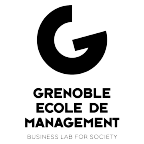
Grenoble École de Management
Grenoble École de Management (GEM) is a well-known business school on a national and international scale. GEM is also an large-scale laboratory, where 8.000 students and 500 employees spend every day learning, working to solve complex problems, and respond to business and society’s challenges.
Read more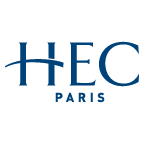
HEC Paris
One of the world’s best business schools, HEC Paris is a leader in research and education in management sciences. It offers a unique portfolio of programs designed for a carefully selected student body.
Read more
ICN Business School
ICN research focuses on important and challenging issues facing business and society, advances management practice, and forms the basis for effective engagement with professionals.
Read more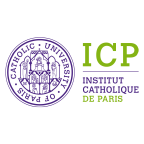
ICP (Catholic University of Paris)
Founded in 1875, the Catholic University of Paris (Institut Catholique de Paris – ICP) is the inheritor of the Medieval Liberal Arts Colleges and lies in the tradition of the Sorbonne, the oldest academic institution in France. ICP is renowned for its excellence in core academic fields such as Theology, Philosophy and Canon Law that serve as a basis for the development of Humanities and Social sciences, where Education, Ethics and Anthropology are well represented. As a non-for-profit Association pursuant to French Law of 1901, recognised as Promoting the Public interest, its unique Research Unit “Religion, Culture and Society” is fully recognised by the French Ministry of Higher Education and Research.
Inspired by a long Christian and Humanistic tradition, ICP values open-mindedness and dialogue across borders, as suggested by the University Motto: “An Open Mind to the World”. ICP welcomes all students and academics, whatever their nationality, culture, language and religion and puts an emphasison individual pedagogical guidance. Centrally located in the 6th district of Paris, between the Latin Quarter and Saint-Germain-des-Prés, ICP is built on the site of an old Carmelite convent from the 17th century. ICP is a place of serenity and history, a unique and positive environment conducive to study, research and campus life.
ICP belongs to the European Higher Education Area and delivers ECTS (European Credits Transfer System). ICP is also a major actor of the, global Catholic network of higher education. ICP prepares for obtaining State Degrees recognized at National and European level (Bachelor, Master and Doctorate Degrees), Canonical Diplomas as well as its own Diplomas. Part of ICP, the ILCF (Institute of French Language and Culture) offers recognised certifications. Faculties of ICP deliver Bachelor (3 years), Master (5 years) and Doctorate Degrees in three main complementary teaching and research areas :
- Humanities : Philosophy, French and International Literature, Past and Present Languages, European languages, Ancient Oriental Languages, History, History of Art, French as a Foreign Language, French Culture, Politics…
- Law, Social sciences and economics : Law, Economics, Sociology, Human Resources, Mediation and Negotiation…
- Theology, Religious Sciences & Canon Law : Canon Law, Moral Theology, Pastoral Catechesis, Theology of Arts, Liturgy, Ecumenical and Interreligious Studies, Exegesis, Christian Anthropology…
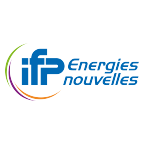
IFP Energies nouvelles
IFP Energies nouvelles (IFPEN) is a major research and training player in the fields of energy, transport and the environment. From research to industry, technological innovation is central to all its activities.
Its areas of expertise include:
- climate, environment and circular economy,
- renewable energies,
- sustainable mobility,
- responsible oil and gas.
As part of the public-interest mission with which it has been tasked by the public authorities, IFPEN focuses on:
- providing solutions to take up the challenges facing society in terms of energy and the climate, promoting the transition towards sustainable mobility and the emergence of a more diversified energy mix;
- creating wealth and jobs by supporting French and European economic activity, and the competitiveness of related industrial sectors.
An integral part of IFPEN, its graduate engineering school – IFP School – prepares future generations to take up these challenges.
IFPEN has proven expertise across the entire value chain, from fundamental research to innovation. It is funded both by a state budget and by resources provided by industrial partners. The latter account for over 50% of IFPEN’s total budget, a configuration that is unique in France.
The aim of IFPEN’s R&I programs is to overcome existing scientific and technological challenges in order to develop innovations that can be used by industry.
IFPEN’s fundamental research program aims to create a library of knowledge essential for the development of innovations.
The scientific expertise of IFPEN’s researchers is internationally recognized and they are regularly consulted by the public authorities to provide their insight in their specific fields to inform the decision-making process.
Read more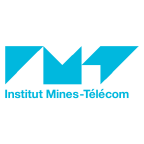
IMT (Institut Mines-Télécom)
The number one group of engineering and management graduate schools in France, IMT (Institut Mines-Télécom) is a public institution dedicated to higher education, research and innovation in engineering and digital technology. It provides the economy with 12.300 freshly-trained engineers, managers and doctors.
8 engineering and management graduate schools
IMT has also formed close ties with 12 partner institutions, known as affiliated schools.
4,100 degrees are awarded each year and 90 % of graduates go straight into permanent work contracts (figures excluding the affiliated schools).
IMT schools form a powerful group, complementing each other and working cohesively together. Their strength is founded on a shared vision to:
- train graduates for businesses,
- develop the economy and France’s territories,
- contribute to innovation and entrepreneurship.
These activities are rolled out in areas linked to the major digital, energy, industrial and educational transitions underway.
Partner-orientated research
The quality of IMT’s partner-orientated research is recognized by 2 Carnot Institute labels, (M.I.N.E.S and Carnot Télécom & société numérique) awarded in 2006 and renewed in 2011.
The research concerns projects that involve IMT research teams and its socioeconomic partners (businesses, associations, local authorities, etc.). This is a major focus of IMT’s Research and Innovation strategy.
Partner-orientated research takes many forms:
- Contractual research
- Collaborative research
- Technology transfer
HAL portal
Open Science Policy
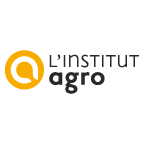
L’Institut Agro
L’Institut Agro is a higher education and research institution specialised in agronomy, food sciences, environmental sciences and landscape studies. It carries out its activities in close association with research organisations, universities, other grandes écoles and both private and public socio-economic actors, in Fance and worldwide.
Read more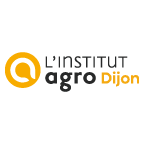
L’Institut Agro Dijon
L’Institut Agro Dijon is a higher education and research institution specialised in agronomy and food sciences. It provides a stimulating scientific environment, while enjoying a high quality living environment.
Read more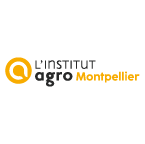
L’Institut Agro Montpellier
L’institut Agro Montpellier is a French public institution devoted to higher education and research in Agriculture, Food and Environment. L’institut Agro Montpellier is widely open to international issues and partnerships, with specific focus and recognized expertise on southern and Mediterranean areas.
L’institut Agro Montpellier offers students and professionals two engineering courses and a wide range of programs following the European LMD framework (Bachelor, Master/Advanced Master, PhD).
L’Institut Agro Montpellier contributes to agricultural research thanks to the involvement of its researcher-professors in 22 research units and 4 joint technology units. l’Institut Agro Montpellier’s scientific teams collaborate closely with major research organizations based in Montpellier (INRAE, CIRAD, IRD…) and regional higher education institutions (University of Montpellier, Paul Valéry University, University via Domitia of Perpignan, CIHEAM-IAMM…). It also manages two experimental agricultural platforms (viticulture, sheep farming, olive cultivation) dedicated to R & D and exchanges with professionals. Knowledge transfer and development take place through the AgroValoMéditerranée business incubation site, a shared platform for setting up and supporting development projects in partnership with INRAE and INRAE Transfert.
Read more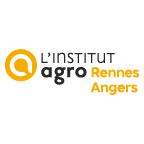
L’Institut Agro Rennes-Angers
The French School of Agriculture, Food, Horticultural and Landscape Sciences (L’Institut Agro Rennes-Angers) is an internal school of the National Institute of Higher Education for Agriculture, Food and the Environment, called the “Institut Agro”, created by decree n ° 2019-1459 published in the Official Journal of December 27, 2019.
Read more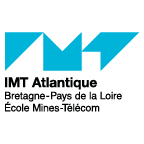
IMT Atlantique
IMT Atlantique is one of the top 10 engineering schools in France, and one of the top 400 universities in the world in THE World University Ranking. It is a general engineering grande école financed by the Ministry of Industry and Digital Communication, and the first Institut Mines Télécom “Mines-Telecom” Technological university, founded on January 1st, 2017 from the merger of Mines Nantes and Télécom Bretagne.
IMT Atlantique is:
- a Higher Education Institution with first-rate research potential, internationally recognized for its research (present in 5 disciplines in the Shanghai, QS and THE rankings).
- a resolutely multi-site institution reflecting the world in which we live. An institution with a strong local presence, and a commitment to contributing to local development
- an institution which is aware of its environmental and societal responsibility. In 2019 it was awarded the sustainable development & social responsibility accreditation.
- and finally, an institution that trains executives capable of understanding and mastering the complexity of the highly interconnected systems of the future, by combining their knowledge of the systems with that of the networks that link them.
HAL portal
Open Science Policy
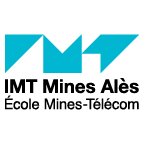
IMT Mines Alès
Among the oldest France’s elite Schools of Engineering, IMT Mines Ales (also known as Ecole nationale supérieure des mines d’Ales) was founded in 1843. The main campuses are located in Ales city, in the south of France, 1 hour from Montpellier.
While proud of its own heritage, it has recently become part of the national ‘Institut Mines Telecom’ (IMT). IMT is the biggest group of Engineering Schools in France (‘grandes ecoles d’ingenieur’: highly selective and prestigious institutions).
IMT Mines Ales’s objectives are to contribute to the economic, technological, environmental and social development. It has put a strong emphasis on its contribution to the Sustainable Development Goals (SDGs) of the United Nations. In 2020, it has ranked 301-400 in the ‘THE Impact’ world ranking dedicated to the SDGs.
IMT Mines Ales conducts research and education in 6 fields of technological expertise covering:
- Civil Engineering and sustainable building design (GCBD)
- Ecomaterials and Processing (ECOMAP)
- Environment, Energy, Risks (2ER)
- Subsurface Engineering and Mining Operations (ISERM)
- Industrial System performance and Mechatronics (PRISM)
- Artificial Intelligence and Software Engineering (2IA)
IMT Mines Ales has 1.400 students (mainly graduate and post-graduate students) including 20% of international students coming from 45 countries. IMT Mines offers many graduate courses, including several international programs fully taught in English (from 1-semester exchange programs to 2-year master curricula). It has 90 international partnerships with foreign universities, including 30 double-degree agreements.
IMT Mines Ales hosts 5 research laboratories, including 2 Joint Research Units with Montpellier University and the French National Centre for Scientific Research (CNRS), which is among the world’s leading research institutions. IMT Mines Ales is also member of 4 doctoral schools and offers various PhD programs to national and international students.
It has very strong connections with the industry and has been the first School in France to create a technological and business incubator. Every year, several start-ups from the incubator get selected to participate to the ‘CES’ international innovation show in Las Vegas.
HAL portal
Open Science Policy
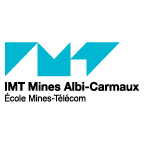
IMT Mines Albi
A school of the ministry of industry, the higher national school of mines of Albi-Carmaux is part of the Mines-Telecom Institute , which is today the first group of schools of engineering and management in France. IMT Mines Albi is also an associate member of the Federal University of Toulouse Midi-Pyrénées and partner to a great number of institutions and prestigious universities in France and abroad. These privileged partnerships make it a welcoming ‘grand école’ and research centre, rich in opportunities, and in economic and professional development prospects. Joining IMT Mines Albi means being part of this network and benefiting from its expertise and the wide variety of opportunities it offers.
HAL portal
Open Science Policy
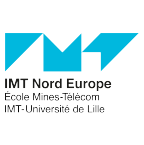
IMT Nord Europe
IMT Nord Europe is one of the 8 leading engineering and management schools that make up the Institut Mines-Télécom. The strength of the group lies in the complementary nature of its schools and their cohesion, based on a common vision: training at the service of companies, economic and territorial development, contribution to innovation and entrepreneurship.
IMT Nord Europe is also a major player in research and innovation in the Hauts-de-France region: its 3 research centres are at the heart of ecological, digital and industrial transformation.
HAL portal
Open Science Policy
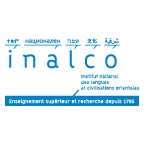
Inalco
lnalco began teaching languages and culture studies in 1795. Ever since, the Institute has cultivated its role in understanding a living heritage outside of any Western references. Inalco promotes the discovery of the world as it is, in all its wealth and diversity, with a desire to become immersed in another way of thinking. Through the quality of our courses and research, Inalco strives to disseminate the knowledge and skills essential for people to understand and engage meaningfully with each other, culturally and socially as well as professionally. Inalco’s humanist values are evident in all its teaching choices, research policy, and cultural programming.
Over the centuries, Inalco has become a unique world institution, teaching languages from Central Europe to Africa and from Asia to America via Oceania. There is no other institution in the world that offers such a diversity of courses or wealth of opportunities and knowledge in one place.
Research at Inalco combines area studies and academic disciplines, the junction of which is particularly innovative and fruitful in scientific terms. Our researchers study languages and cultures that are increasingly in the spotlight—Africa, the Middle East, Asia, and as far as the Arctic—and are central to the major issues of the 21st century.
HAL portal
Open Science Policy
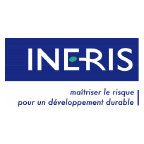
Ineris – French National Institute for Industrial Environment and Risks
The French National Institute for Industrial Environment and Risks (Ineris) is an industrial and commercial public establishment under the aegis of the Ministry of the Environment.
Ineris was created in 1990 as a result of the merger between the French Centre for Studies and Research into Collieries (Cerchar) and the Institute of Applied Chemical Research (Ircha).
It has accumulated nearly 70 years of expertise and knowledge.
The Institute’s mission is to contribute to the prevention of risks caused by economic activities to health, environment, and the safety of people and goods.
It conducts research programs with the aim of improving our understanding of the phenomena that are likely to lead to risk situations or damage to health and the environment, and of further developing its expertise in prevention. It works to expand its scientific and technical capabilities in the fields of accidental risk, chronic risk, and ground-level / subterranean risks (mining), and makes them available to public authorities, local authorities, and businesses to help them make the decisions best suited to improving environmental safety.
Read more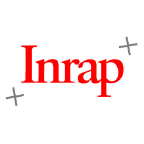
Inrap (French National Institute for Preventive Archaelogical Research)
Inrap was created in 2002 in application of the law on preventive archaeology. The Institute ensures the detection and study of archaeological remains concerned by construction projects in France and its overseas territories. It exploits and diffuses the results of its research to the scientific community and participates in teaching, cultural diffusion and public outreach.
Largely self-funded, Inrap is a research establishment in the public sector under the tutelage of the Ministries of Culture and Communication, National Education, Higher Education and Research. In addition to its State representatives, its Board of Directors is composed of representatives of research organisms and local governments, as well as developers and qualified persons in the field of archaeology.
Its research activity is conducted under the aegis of a scientific committee composed of the associated ministries and members of the archaeological community: CNRS, universities and the archaeology services of local government bodies.
During the different phases of archaeological research, Inrap shares the results of its work with the public. It develops diverse resources that are widely diffused via the organization of site visits, colloquia and exhibitions, publications, audiovisual documentaries, radio programs and digital tools. Each year since 2009, under the aegis of the Ministry of Culture and Communication, Inrap organizes the French National Archaeology Days.
Read more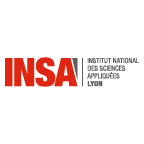
INSA Lyon
INSA Lyon is a leading engineering school with strong humanist values that have formed the basis of its business model for more than 60 years.
Created in 1957 by philosopher Gaston Berger and Rector Jean Capelle, INSA Lyon is the oldest and largest of the six schools making up the INSA Group.
INSA engineers lead careers built around with a logic of high adaptability, a pioneering approach to science and technology, and a strong sense of social responsibility.
The humanist commitment of INSA schools and their openness to different origins, cultures and social background are the hallmark of the two founders.
While teaching sciences obviously constitutes the core of the five-year engineering programmes, the ‘Humanities’ have also played a central role since the creation of INSA Lyon in training engineers who are open to the world engineers.
In addition to the languages, philosophy and culture, our engineering students benefit from specific training in management and issues inherent to the corporate world.
These teachings include foundations of ethical reflection, implementing innovative and active pedagogies that aim to provide the students with opportunities to learn about citizenship, gain autonomy, and develop a sense of responsibility, while encouraging creativity and innovation.
- Top quality training in engineering (5-year programme after Bac/A-levels) in 9 specialisations
- 9 post Master’s programmes accredited by the “Conférence des Grandes Ecoles”
- 2 fields (aimed at Research) of the Lyon Master’s programme for Sciences
- 8 doctoral schools
INSA Lyon boasts 23 research laboratories, more than 600 researchers and teacher-researchers, 650 PhD students, and over 1,000 industrial contracts with the socio-economic world.
This represents a scientific and technological capital that accounts for much of the international prestige of the school.
Read more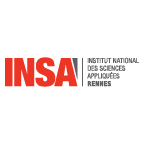
INSA Rennes
Created in 1966, INSA Rennes is a member of the INSA Group, the leading French network of state graduate and post graduate engineering schools, composed of 6 schools in France, 7 partner schools and 1 international INSA in Morocco.
Research and innovation are the key elements of INSA training, which benefits from the expertise of its 130 professors and lecturers . With six laboratories of international renown, three technological platforms and numerous industrial partners, INSA Rennes stands out for two poles of excellence: Information &Communication Science &Technologies / Materials, Structures & Mechanics
With almost 2 000 students, INSA Rennes is a prestigious “Grande Ecole”, a graduate and post graduate school of sensible proportions. INSA Rennes delivers high level scientific training conforming to the highest official European standards: Masters in engineering / Masters by research / Doctorates (PhD)
Read more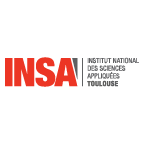
INSA Toulouse
With 14,000 alumni present in all economic sectors, the “Institut National des Sciences Appliquées” of Toulouse, an international, pluridisciplinary, state engineering school, is recognised for the excellence of its five-year education which attracts students of a high academic level and who have obtained excellent results at the Baccalaureat.
INSA-Toulouse provides a range of 8 engineering specialisations, including computer sciences, civil engineering, mathematical engineering and biochemical engineering. Its courses, linked to the latest scientific advances, are supported by the activity of leading-edge research laboratories, backed by large industrial groups, for example in the fields of new materials for aeronautics, environmental protection techniques and nano-objects.
Throughout the course, the students are confronted with concrete, complex projects and problems on which they work in groups, with the help of teachers when requested. No questions, no lectures… is the principle behind this active learning approach, experimented by renowned universities in America and Northern Europe, and now advocated by UNESCO.
The international dimension has been a priority for INSA since it opened and international sections have gradually been set up. On campus, one in five students is an international student.
INSA welcomes students with a wide range of profiles: students with a technological “Baccalaureat”, students opting for a cooperative education alternating periods of academic study and industrial experience and continuing education students.
Being open to the world also involves the student’s commitment to the community which is highly valued and gives ECTS credits as part of the course.
Read more